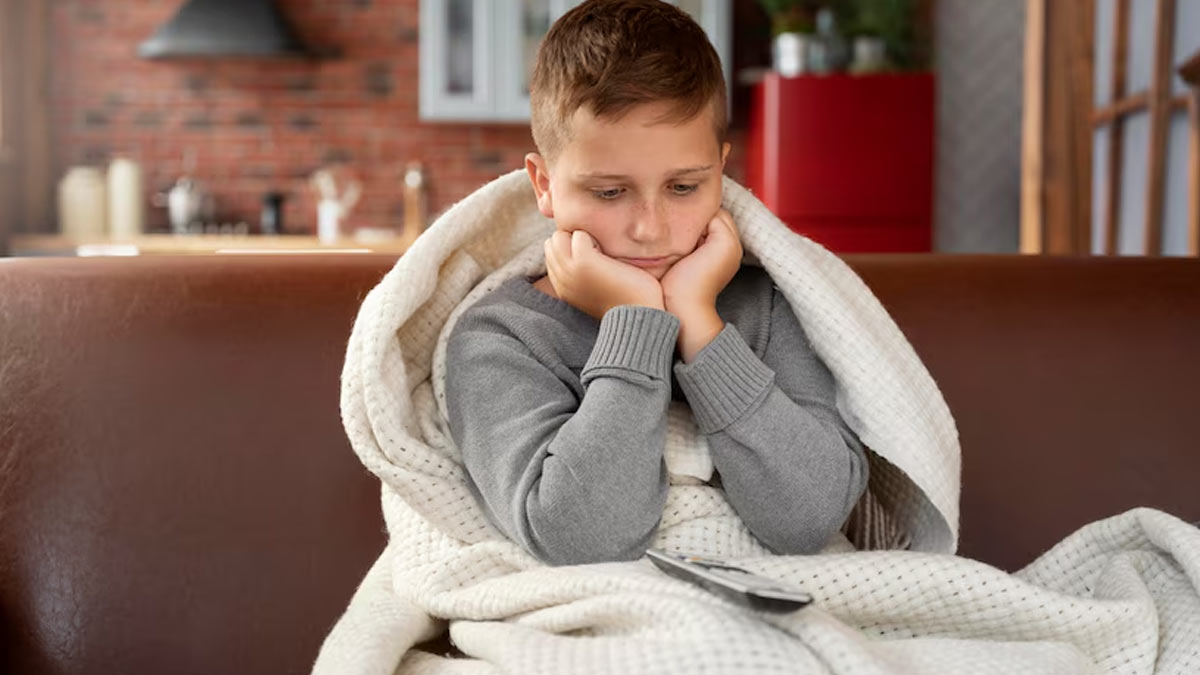
Respiratory Syncytial Virus (RSV) is a common viral infection that primarily affects infants and young children. It usually causes a common cold but sometimes it infects the lungs and breathing passage causing breathing problems in babies and young children.
Table of Content:-
Studies show that RSV is majorly found in children of the age of 0 to 5 in India as compared to other age groups.
To understand RSV in children better, OnlyMyHealth interacted with Dr Arun Kotaru, Consultant in Pulmonology & Sleep Medicine at Artemis Hospital Gurugram.
As per Dr Kotaru, RSV manifests itself in the form of respiratory symptoms that range from mild cold-like symptoms to major respiratory problems. “It is crucial to have proper understanding of this problem for early recognition and appropriate management,” Dr Kotaru said.
Symptoms of RSV in Children

According to Dr Kotaru, Understanding RSV involves knowing its symptoms and cause. Here are the symptoms of RSV.
1. Mild Symptoms
Typically, RSV begins with common cold-like symptoms including runny nose, nasal congestion, cough, sneezing, and low-grade fever. These mild symptoms generally last for 1-2 weeks and may gradually get worse with time.
2. Moderate to Severe Symptoms
“In some cases, RSV infection can show more severe respiratory symptoms like rapid or heavy breathing, wheezing, coughing fits, cyanosis which is bluish discoloration of the skin or lips due to lack of oxygen, and difficulty in feeding or breathing,” Dr Kotaru said. In severe cases, it may lead to diseases like bronchitis or pneumonia, especially in babies or kids with weak immune systems.
3. Complications
Infants who are born prematurely or infants with underlying conditions like chronic lung disease, congenital heart defects, or immunodeficiency and young children with weakened immune systems are at increased risk of developing severe RSV. Dr Kotaru said their treatment requires hospitalisation, intensive care, and mechanical ventilation.
Also read: Promoting Gut Health In Children: Expert Lists Tips To Boost Gut Health In Your Kids
Causes of RSV
Here are some of the causes of RSV infection.

1. Viral Transmission
This infection can be spread through respiratory droplets when an infected person coughs or sneezes. “The virus can survive on surfaces for several hours, increasing the possibility of transmission through contact with contaminated objects or surfaces,” Dr Kotaru said.
2. Seasonal Patterns
RSV infections can often occur in seasonal outbreaks, typically during the fall, winter, and early spring months. As per Dr Kotaru, RSV outbreaks usually peak between November and April, while in tropical regions, RSV activity may happen all year long.
3. Risk Factors
Factors including premature birth, exposure to tobacco smoke, being in crowded environments or having older siblings or family members having respiratory infections can increase the risk of RSV in infants and young children. Weak immunity is another risk factor for RSV.
Also read: Expert Tips To Prevent Water-Borne Diseases In Infants
Prevention and Management

To safeguard the health of your child, it is important to follow these prevention tips.
1. Hygiene
Adopting hygienic practices like frequent hand washing, avoiding close contact with sick people and disinfecting frequently touched surfaces can help in reducing the risk of RSV transmission according to Dr Kotaru.
2. Supportive Care
For kids with mild RSV infections, treatment typically involves supportive care, including adequate hydration, rest, and fever management. “In severe cases requiring hospitalisation, children may receive supplemental oxygen, intravenous fluids, and respiratory support to manage breathing problems,” Dr Kotaru said.
3. Antiviral Medications
According to your doctor’s suggestion, antiviral medication is given to kids with severe infections who are hospitalised.
Conclusion
It is important to identify the symptoms of RSV and provide required treatment to the children for quick recovery. Parents and relatives of the kids must ensure cleanliness and all the other measures that your doctor or healthcare provider might advise you for the safety of your kid’s health.
Also watch this video
How we keep this article up to date:
We work with experts and keep a close eye on the latest in health and wellness. Whenever there is a new research or helpful information, we update our articles with accurate and useful advice.
Current Version
